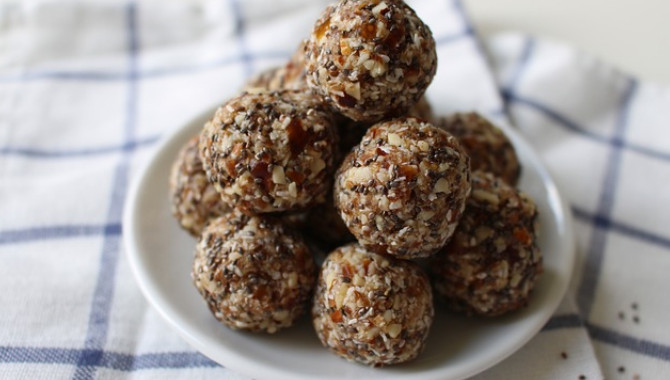Finding biscuits and pastries that are fully vegan can be really tricky. Many favourite brands are loaded with animal ingredients, like butter, milk, whey or suet. The most wholesome-seeming and innocuous snack can turn out to be completely unsuitable for a vegan lifestyle. Luckily, there are plenty of alternatives on the market. It may mean parting ways with your favourite brands but you can usually satisfy a craving for your preferred treats without compromising your vegan lifestyle. It just requires a little research, and maybe a willingness to roll up your sleeves and turn on the oven.
Are Fig Newtons vegan? Nabisco’s Fig Newtons brand of fig-filled pastries does not include any vegan items. All varieties of Fig Newtons branded pastries contain whey and other animal products. You can purchase vegan fig rolls of a similar type to Fig Newtons from other vendors or make your own at home.
Maybe you’ve recently become a vegan and you’re looking for tasty snacks that are compatible with your new lifestyle. Perhaps you’re an established vegan and want to try something new. If you’ve landed on this page, you obviously have questions about Nabisco Fig Newtons and similar snacks.
- What are Fig Newtons?
- Are they acceptable for a vegan diet?
- What animal ingredients are contained in Fig Newtons?
- Can you find vegan versions of this popular snack?
- How come Fig Newtons aren’t vegan?
- Can you make your own vegan Fig Newtons?
Fortunately, we have the answers you’re looking for. Read on to find out more about Fig Newtons and related products.
Are Fig Newtons vegan?
Fig Newtons are a brand of biscuits. The term “Fig Newtons” has fallen into use as a generic term but technically Fig Newtons are only made by Nabisco, which owns the trademark. You’ll generally find this type of snack called fig rolls or figgy rolls outside of the US; I´m going to use this generic term to distinguish potentially vegan treat from Nabisco Fig Newtons. Nabisco Fig Newtons were non-vegan for as long as I can remember due to the presence of milk in the pastry; however, they seem to have made some changes recently and now I know a few fellow vegans who consider them to be okay.
Fig rolls were my favourite as a kid. I loved the combination of sweet, slightly crumbly pastry and tart fig paste filling. I still eat them from time to time, although I avoid actual Fig Newtons as they’re made with whey. Luckily, whey and other animal products are unnecessary for making these treats. You can find plenty of vegan fig rolls, or make your own at home if you want even more control over your ingredients.
Fig rolls potentially contain lots of other controversial ingredients, even if you find a variety that’s free from whey. These may be a matter of concern to some vegans, although others may take a more pragmatic position.
First on the list is sugar, which can be a bit of a vexed issue for vegans. Some claim that since sugar is made from plant material, it’s simply a vegan product. The controversy arises due to the use of a material called bone char during the refining process. To give refined cane sugar its pristine whiteness, it is passed through filters which are typically made from charred animal bone. While cane sugar can be refined without the use of bone char, it can be hard to guarantee that the cane sugar in your food hasn’t been filtered through bone. Nor is brown cane sugar necessarily free from association with bone char, as many manufacturers simply take refined white sugar and mix it with little molasses to restore the original brown colour. Beet sugar is not made with bone char but ensuring that your food contains only beet sugar can be tricky.
Another potential issue with commercial fig rolls is the use of flavourings and colourings. These will vary from brand to brand but most manufacturers use at least some artificial ingredients. You’re probably all right with artificial vanilla (no, it doesn’t come from beaver glands — the vanillin in your food is synthesised from unhealthy but non-animal sources) but some artificial ingredients, particularly colourings, are tested on animals.
As a vegan, you’re probably a very health-conscious person. This raises another issue: Fig Newtons and other fig roll cookies aren’t a particularly healthy option. Despite the best efforts of advertisers to convince us otherwise, the mere presence of fruit in a snack doesn’t really offset the large quantities of refined sugar, white flour, hydrogenated vegetable fat and other decidedly unhealthy ingredients. They’re fine for the occasional treat but really not something you should be eating every day. Later on, we’ll look at some healthier alternatives.
One common point of confusion regarding the vegan status of figs themselves is the fig wasp. Certain types of fig are pollinated by a species of wasp, which occasionally dies inside the fig and stays there. Personally, I don’t really see this as any different to finding a maggot in an organic apple.
Which brands are vegan?
There are plenty of vegan fig rolls out there but you will need to do some diligence when you’re shopping. Because fig rolls don’t contain eggs, don’t use gelatin and don’t need to use whey, it’s much easier to find incidentally vegan versions of this snack than some others. If you’re in a hurry and just want to grab something tasty off the shelf, fig rolls are a pretty good bet. Just make sure you check for unsuitable materials like whey in the ingredients.
Several companies make fig rolls without animal ingredients. Some of the big names are Huntley & Palmers, Jacobs, and McVitie’s. All of these brands’ fig roll biscuits are incidentally vegan — animal ingredients are omitted because they’re unnecessary rather than because any company decided to create a vegan recipe. This means, unfortunately, that they’re probably not monitoring their recipes to ensure that any alterations don’t change the vegan status of the products. Sometimes a previously “safe” product will become non-vegan almost overnight because someone in the research department decided it would taste nicer with whey.
You might also get lucky with some supermarket own brands. These are often produced in the same facilities as the brand-name version and may have exactly the same recipe. This is especially true of high-end supermarkets and budget chains with an emphasis on quality. It’s well worth checking out the own brand fig rolls in your favourite stores — you might be pleasantly surprised. If the ingredients list doesn’t have the information you need, contacting the supermarket directly can determine whether you’ve got an accidental vegan product on your hands.
As with any vegan food product, your best bet is to buy from a manufacturer who offers only vegan products (and preferably organic). This will ensure that your favourite snack is as close to cruelty-free as possible, and is probably more sustainable made. You’ll also be supporting a business that’s in line with your own standards rather than a dubiously ethical multinational.
Are there healthier alternatives to Fig Newtons?
There are some really delicious products out there that will definitely satisfy your craving for Fig Newtons without all the additional fat, sugar and processed carbs.
First on the list is simply dried figs. If you were one of those kids who nibbled all the pastry off your Fig Newtons and saved the fig paste till last (you know who you are), dried figs may hit the spot. They’re tasty, nourishing and high in fibre. Eat them on their own or slice them and dip them in fresh fruit purée or vegan yoghurt.
You can find energy bars that include figs as a principal ingredient. These are much healthier than the sugary disaster that is your average Fig Newton and very tasty as well. Be a bit careful when you shop for these, as there are some rather questionably “healthy” bars out there. As I mentioned earlier on, manufacturers absolutely love to claim that their products are healthy while loading them up with sugar, saturated fats, and all kinds of ingredients that are likely to have a negative effect on your health. It doesn’t matter how many great ingredients are in a snack if it’s also full of glucose syrup, high fructose corn syrup, hydrogenated oils, and so on.
Your best bet is to go for a raw food bar. I like Nakd’s fig-based bars, which pack in a lot of additional protein. The seeds and nuts give these bars a very satisfying crunch — something that’s lacking from traditional fig rolls. Nakd does a number of other tasty flavours which will repay experimentation — and they’re vegan.
Far and away my favourite option, if I have the time, is to make my own fig-paste based snacks. While it’s very easy to make pastry-covered Fig Newton-type cookies, I prefer no-bake options. For one thing, they’re much quicker to whip up and need less preparation. It’s usually just a matter of mixing your chosen ingredients together in a bowl, making them into bars or bites, and perhaps refrigerating them for a while.
I like to add a bit of crunch to my fig snacks — anything from chopped nuts to sesame, pumpkin seeds or hemp is great. If I’m craving a little extra sweetness I knead in some agave nectar or organic molasses — also a great source of iron. One of my friends uses the tangy flavour of figs to conceal her daily dose of spirulina. Really, though, it’s up to you. You can tweak the mixture to suit your own palate and nutritional needs.
Welcome to VeganClue - My name is Robert Van De Ville and together with my team we spent hundreds of hours researching the most relevant topics for Vegans and non yet Vegans. Are you looking for more information about Veganism, animal welfare, diet, health, and environmental benefits of the Vegan lifestyle? You are in the right place! Enjoy the site.

